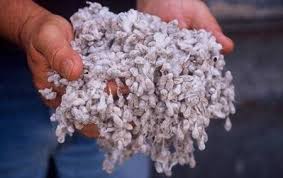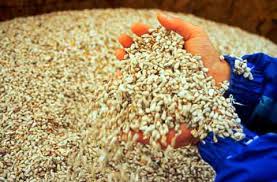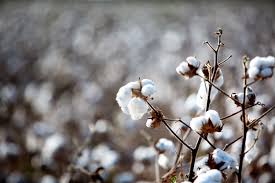Cottonseed is a tiny powerhouse packed with goodness! It comes from cotton plants, those fluffy white ones you often see in fields. Did you know that cottonseed is like a treasure trove of nutrients? Yep, it’s true! These little seeds are bursting with protein, fiber, and healthy fats. That means they’re not just tasty; they’re good for your body too.
You might be wondering, “What can I do with cottonseed?” Well, the answer is, quite a lot! People press these seeds to make cottonseed oil. This oil is not just any oil – it’s used in cooking! It adds a delicious touch to your favorite dishes. Imagine that! Something so small making your food taste so good.
But that’s not all. Cottonseed also plays a role in feeding our furry friends. Believe it or not, it’s used in animal feed. So, your pets might be munching on something that comes from these little seeds.
Let’s talk about cottonseed in the farm world. Farmers are smart – they don’t let anything go to waste. After cotton plants have been picked for their fibers, the leftover seeds still have a job to do. They’re used to make oil or meal, and this helps farmers and the environment.
Now, get ready for a cool fact – cottonseed has something called gossypol. It’s like a superhero for the cotton plant, protecting it from pests. But here’s the twist – too much gossypol isn’t great for us humans. So, scientists are working hard to figure out how to make cottonseed safe and healthy for everyone.
Cottonseed may be small, but it’s mighty! It gives us tasty oil, feeds animals, and even helps the environment. So, the next time you see those fluffy cotton plants, remember the little wonder seeds hiding inside – the amazing cottonseed!
Now, let’s talk about the journey of cottonseed from the farm to your table. Once the cotton is harvested and the seeds are separated, they embark on a fascinating adventure.
These seeds are sent to processing plants where they undergo pressing. This pressing is like a gentle squeeze to extract the golden cottonseed oil. Imagine it as a magic trick – turning tiny seeds into a liquid gold that you can cook with!
Cottonseed oil is not just a kitchen superhero; it’s also used in products you use every day, like salad dressings and mayonnaise. It adds a special touch, making your meals not only tasty but also healthy.
But what about the leftover part of the seed after the oil is extracted? Don’t worry; it doesn’t go to waste. It transforms into something called cottonseed meal. This meal is a valuable ingredient in animal feed. Farmers use it to make sure their livestock gets the nutrients they need to be strong and healthy.
Now, let’s shift our focus to the environmental side of cottonseed. Farmers are like nature’s best friends. They’ve found a way to recycle and reuse almost everything. After the pressing process, the remaining seed hulls become a fantastic source of renewable energy. It’s like turning waste into power – a smart move for a sustainable future.
But wait, there’s more! Cottonseed isn’t just about food and energy; it’s also making waves in the health world. Scientists are exploring its potential benefits for human health. From antioxidants to heart-friendly fats, cottonseed is becoming a subject of research to unlock even more secrets for our well-being.
However, the story of cottonseed is not just about its size; it’s about its impact. From being a key player in the kitchen to contributing to animal nutrition and sustainable practices, cottonseed proves that good things come in small packages. So, next time you enjoy a meal cooked with cottonseed oil, remember the incredible journey of these tiny seeds, making a big difference in our world.
Read Also: The Economic Benefits of Soybeans
Importance of Cottonseed

The importance of cottonseed reaches far and wide, touching various aspects of our lives, agriculture, and the environment.
First and foremost, cottonseed plays a crucial role in the food industry. The oil extracted from these seeds is a versatile cooking ingredient, adding flavor and nutritional value to countless dishes. It’s not just about taste; cottonseed oil contains a balanced mix of fats, making it a heart-healthy option for cooking.
On the agricultural front, cottonseed contributes to sustainable farming practices. After cotton fibers are harvested, the leftover seeds are used to produce oil and meal. This dual-purpose utilization minimizes waste, making the entire cotton plant resourceful and environmentally friendly.
Furthermore, cottonseed meal serves as a valuable component in animal feed. Livestock, from cows to chickens, benefit from the nutrients in cottonseed meal, ensuring their health and productivity. This connection between agriculture and animal husbandry creates a cycle of efficiency in the farming ecosystem.
Cottonseed doesn’t stop there; it makes a positive impact on the environment. The residual seed hulls, after oil extraction, become a source of renewable energy. This not only reduces waste but also promotes sustainable energy practices, contributing to a greener and cleaner planet.
In the realm of scientific research, the compounds found in cottonseed, such as gossypol, are under scrutiny for potential health benefits. Scientists are exploring ways to harness the nutritional advantages of cottonseed while ensuring it aligns with human dietary requirements.
In essence, the importance of cottonseed lies in its multifaceted contributions – from being a culinary delight and a crucial component in animal nutrition to fostering sustainable farming practices and holding promise for human health. It’s a small seed with a big impact, weaving itself into the fabric of our lives in more ways than we might initially realize.
Read Also: How to Grow and Care for Corn
Uses of Cottonseed

Cottonseed, despite its small size, boasts a multitude of uses across various industries, making it a versatile and valuable resource.
1. Cooking Oil: The primary and perhaps most well-known use of cottonseed is the extraction of cooking oil. Cottonseed oil is a popular and healthy option for culinary purposes, used in frying, baking, and salad dressings.
2. Animal Feed: After oil extraction, the remaining seed components are utilized to produce cottonseed meal. This protein-rich meal becomes a valuable ingredient in animal feed, contributing to the nutrition of livestock and poultry.
3. Biofuel Production: The seed hulls, a byproduct of oil extraction, are not discarded. Instead, they find purpose in the production of biofuels. Transforming waste into energy, cottonseed contributes to sustainable practices in the energy sector.
4. Industrial Applications: Beyond the kitchen and the farm, cottonseed has industrial applications. Its oil is used in the manufacturing of soaps, cosmetics, and even certain plastics, showcasing its versatility in various production processes.
5. Health Research: The compounds within cottonseed, such as gossypol, are subjects of ongoing research in the health field. Scientists are exploring potential health benefits, paving the way for new developments in nutritional science and dietary recommendations.
6. Environmental Sustainability: The incorporation of cottonseed into biofuel production aligns with environmental sustainability goals. By utilizing a byproduct for renewable energy, the agricultural industry demonstrates a commitment to reducing waste and promoting eco-friendly practices.
7. Textile Industry: While the primary focus is often on cotton fibers, the seeds themselves contribute to the overall sustainability of cotton production. As part of the cotton plant, their efficient use ensures a more comprehensive and eco-friendly approach within the textile industry.
In summary, the uses of cottonseed extend far beyond the fields where cotton grows. From nourishing our bodies through cooking oil and animal feed to contributing to industrial processes and biofuel production, cottonseed showcases its adaptability and significance in various sectors. Its role in ongoing health research further underlines the potential for future applications and benefits.

